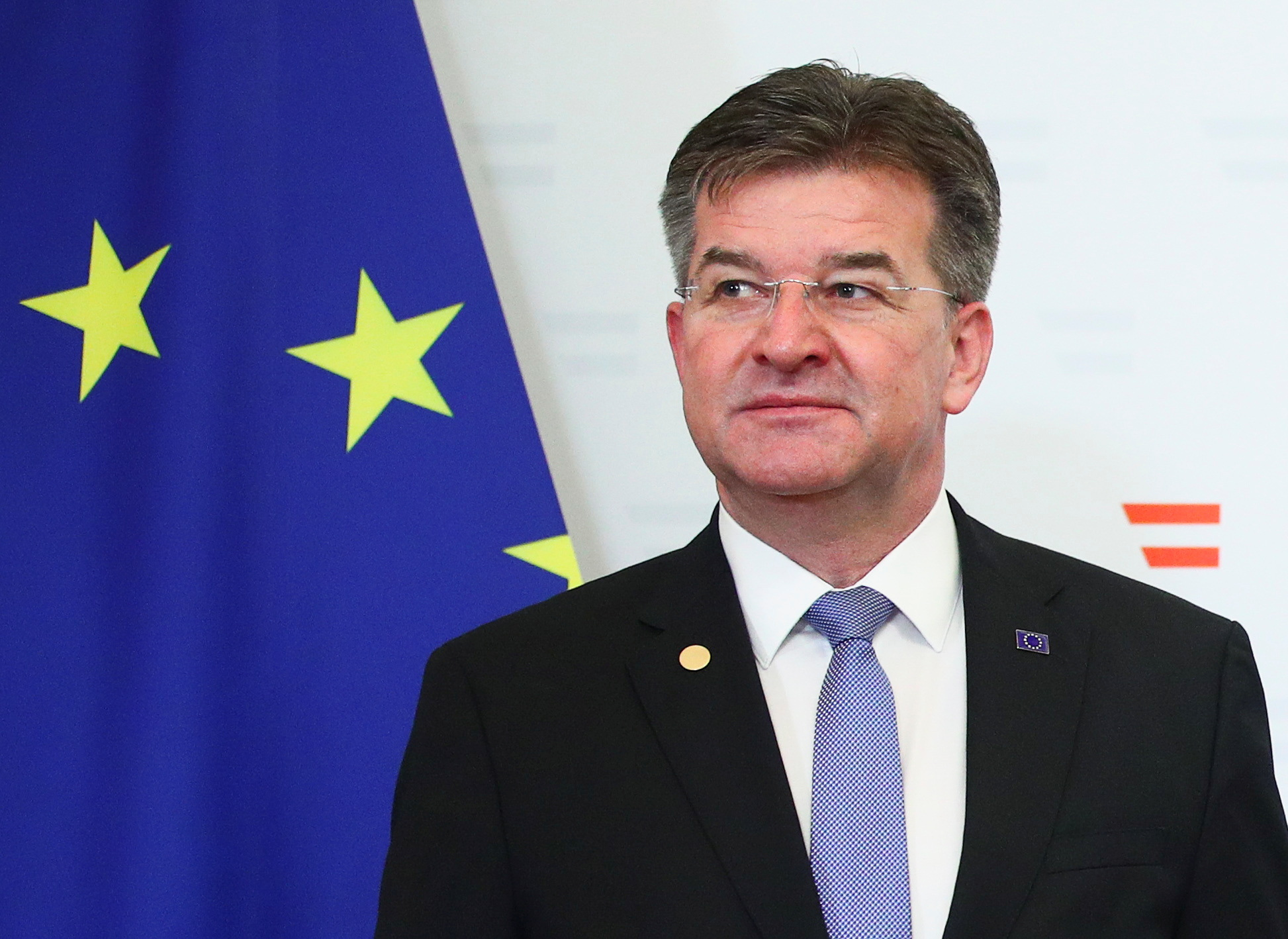
Austrian Chancellor Sebastian Kurz (not pictured) welcomes EU Special Representative for Belgrade-Pristina Dialogue Miroslav Lajcak to the Western Balkans conference at the Chancellery in Vienna, Austria June 18, 2021. REUTERS/Lisi Niesner/archive photo Acquire license rights
PRISTINA, July 4 (Reuters) – The European Union will not lift political and economic sanctions against Kosovo unless the government defuses tensions with ethnic Serbs, EU envoy Miroslav Lajcak said on Tuesday during a visit to Pristina.
EU countries imposed punitive measures in majority-Albanian Kosovo after Prime Minister Albin Kurti’s government failed to heed EU and US demands to defuse conflicts in the north of the country after the worst clashes in more than a decade.
The measures include stopping visits by Kosovar officials to the EU and suspending much EU economic aid to the small Balkan republic. Brussels has warned of further measures if Kurti does not act to ease tensions.
“My wish is not to have sanctions,” Lajcak told reporters in Pristina after a three-hour meeting with Kurti. “The goal of this mission, of course, and of the discussion we are having, is to get to the point where these measures will be decided.”
In a statement, Kurti said he told Lajcak that “the EU’s punitive measures against Kosovo are unfair and make the dialogue asymmetrical.”
Violence in northern Kosovo, where 50,000 Serbs live and form a local majority, erupted in late May after ethnic Albanian mayors took office following local elections boycotted by Serbs demanding implementation of a ten-year-old agreement for more autonomy.
Around 30 NATO peacekeepers defending three town halls in northern Kosovo were injured in clashes with Serbian protesters, and 52 Serbs were injured.
Lajcak said the EU also wanted Serbia, to which northern Kosovo Serbs still pledge their allegiance 15 years after Pristina declared independence from Belgrade, to act constructively to defuse the crisis, or face sanctions. .
“The European Union has made it clear that it is also preparing sanctions against Serbia and that they will be applied if member states decide that Serbia is not complying with the EU request,” he said. said Lajcak, who will travel to Belgrade on Wednesday.
The United States and the European Union, Kosovo’s main allies, have held Kurti responsible for tensions in the north for installing four ethnic Albanian mayors in their offices with police protection over the objections of local Serbs.
Reporting by Fatos Bytyci; edited by Mark Heinrich
Our standards: The Thomson Reuters Trust Principles.

